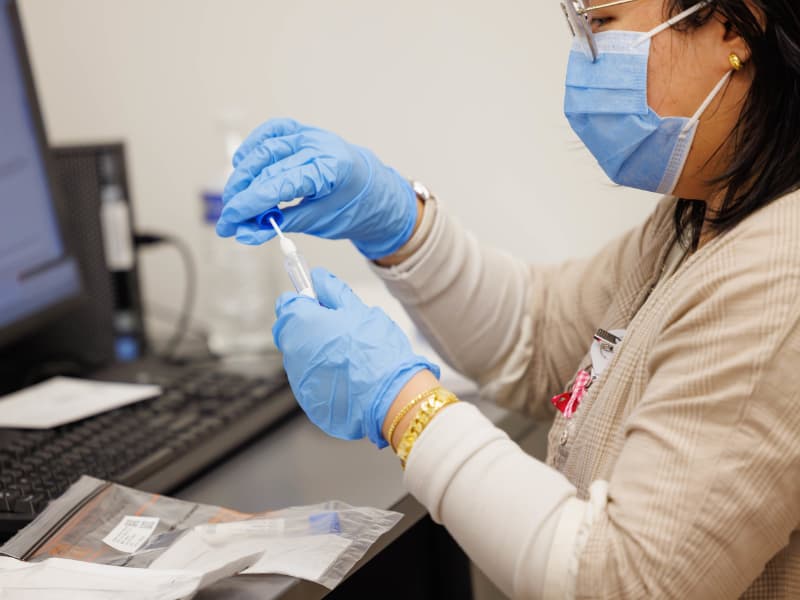- Health Care
- Genetics and Genomics
- Genetic Clinics
Genetic Clinics
Amyloid Clinic
The Amyloid Clinic is dedicated to diagnosing and managing inherited amyloidosis, with a particular focus on mutant transthyretin (mTTR) amyloidosis. Amyloidosis is a condition where abnormal proteins, called amyloids, accumulate in tissues and organs, leading to progressive damage in the areas where they collect. mTTR Amyloidosis, once considered rare, is now recognized to affect approximately 3.4% of the African American population, with an onset ranging from 17 to 80 years.
mTTR Amyloidosis can cause a variety of symptoms, such as:
- Bilateral carpal tunnel syndrome
- Gastrointestinal issues (diarrhea, constipation or unintentional weight loss)
- Neuropathy (tingling, numbness, or weakness in the hands and feet)
- Congestive heart failure
 Because of its non-specific symptoms, this condition is frequently misdiagnosed, delaying necessary care. Genetic testing can identify mutation in the TTR gene, helping to assess risk and guide care in patients and family members. With early detection, effective treatments are now available for managing neuropathy and heart failure associated with TTR amyloidosis. This significantly improves outcomes when treatment begins promptly. Additionally, identifying this condition allows for timely assessment of at-risk family members who carry the TTR mutation but are currently asymptomatic.
Because of its non-specific symptoms, this condition is frequently misdiagnosed, delaying necessary care. Genetic testing can identify mutation in the TTR gene, helping to assess risk and guide care in patients and family members. With early detection, effective treatments are now available for managing neuropathy and heart failure associated with TTR amyloidosis. This significantly improves outcomes when treatment begins promptly. Additionally, identifying this condition allows for timely assessment of at-risk family members who carry the TTR mutation but are currently asymptomatic.
At UMMC, we understand the importance of a multidisciplinary approach to care. Our Amyloidosis Clinic partners with UMMC neurology and cardiology teams to ensure patients are evaluated by specialists who provide tailored, comprehensive care.
Other inherited forms of amyloidosis, such as apolipoprotein A-I, A-II, gelsolin, and fibrinogen amyloidosis, are also evaluated in our clinic.


